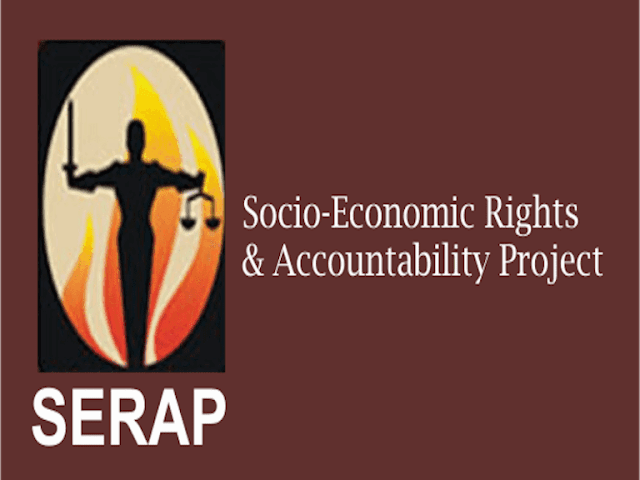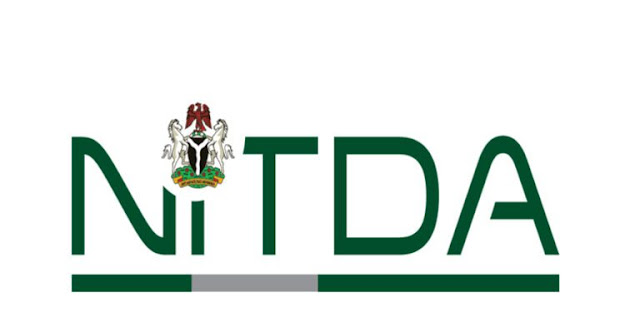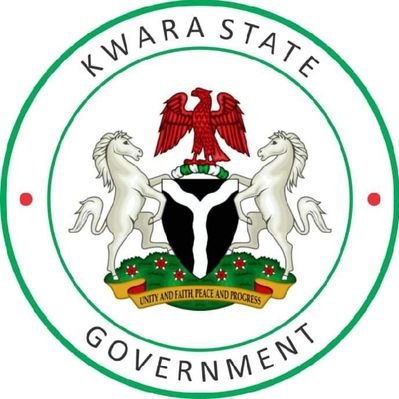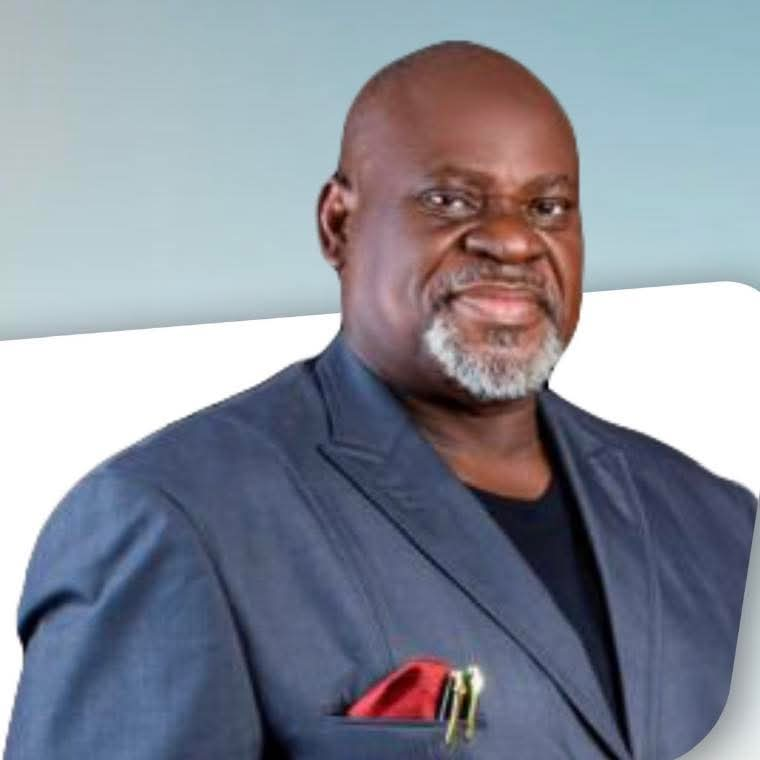ABUJA, Nigeria – August 25, 2025 – The Socio-Economic Rights and Accountability Project (SERAP) and the Nigeria Labour Congress (NLC) have issued a joint call to President Bola Tinubu to immediately suspend the Revenue Mobilisation Allocation and Fiscal Commission’s (RMAFC) controversial proposal to increase salaries for political office holders, including the president, vice president, governors, deputy governors, and lawmakers. The organizations warn that the move violates constitutional guarantees, exacerbates Nigeria’s deepening inequality, and risks sparking social unrest at a time when millions of Nigerians are grappling with unprecedented economic hardship. This report examines the details of the proposal, the criticisms leveled by SERAP and the NLC, the broader socio-economic context, and the potential implications for Nigeria’s governance and social stability.
The RMAFC Proposal: A Contentious Move
The RMAFC, tasked with determining the remuneration of public office holders under Nigeria’s 1999 Constitution, announced on August 18, 2025, its intention to conduct a comprehensive upward review of salaries and allowances for political office holders. RMAFC Chairman Mohammed Bello defended the proposal, describing current salaries as “paltry” and arguing that they have not been comprehensively reviewed since 1992. Bello cited the rising cost of living and the need to align remuneration with economic realities as justifications for the proposed increase.
The announcement has sparked widespread backlash, particularly given Nigeria’s ongoing economic challenges. The NBS reported a headline inflation rate of 21.88% in July 2025, down slightly from 22.22% in June, but still reflective of a high cost-of-living crisis. Diesel prices, a key driver of inflation, surged by 29.72% year-on-year to N1,789.45 per litre in July 2025, further straining businesses and households. Against this backdrop, the proposal to raise salaries for politicians, who are already perceived as well-compensated, has been met with accusations of insensitivity and disregard for the struggles of ordinary Nigerians.
SERAP’s Critique: A Breach of Constitutional Principles
In a strongly worded statement issued on Sunday, August 24, 2025, SERAP’s Deputy Director, Kolawole Oluwadare, condemned the RMAFC’s proposal as a violation of Nigeria’s constitutional framework. SERAP argued that the planned salary increase contravenes Chapter 2 of the 1999 Constitution (as amended), which outlines the Fundamental Objectives and Directive Principles of State Policy, emphasizing equitable resource distribution and the welfare of citizens. Additionally, the group cited Chapter 4, which guarantees fundamental rights, including equality and non-discrimination, asserting that prioritizing higher pay for political elites widens the gap between the privileged and the impoverished.
“Access to pipe-borne water and affordable healthcare remains a dream for millions of Nigerians, while electricity supply is epileptic and unreliable in an era where globalization has made such services cheap and widely available,” Oluwadare stated. He highlighted the dire socio-economic conditions facing the country, including rising poverty levels, with the World Bank estimating that 38.9% of Nigerians (approximately 87 million people) live below the poverty line. The proposed salary increase, SERAP argued, would deepen public mistrust in governance and undermine President Tinubu’s inaugural pledge to govern impartially according to the Constitution and the rule of law.
SERAP reminded the president of his May 2023 inauguration speech, in which he promised a better society through collective sacrifices. “Directing the RMAFC to suspend the imminent pay rise for political office holders will be entirely consistent with your constitutional oath of office and your oft-expressed commitment to ensure a better society,” the statement read. The group urged Tinubu to demonstrate leadership by prioritizing reforms that address the needs of ordinary Nigerians, such as improving access to basic services like water, healthcare, and electricity.
SERAP also referenced a 2021 Federal High Court ruling in Lagos, which ordered the RMAFC to review downward the salaries and allowances of National Assembly members to reflect economic realities. The ruling followed consolidated suits by SERAP, BudgIT, Enough is Enough (EiE), and other civil society groups, highlighting long-standing concerns about excessive remuneration for politicians. The group criticized the RMAFC for ignoring this precedent and instead proposing an increase that would further burden Nigeria’s strained fiscal resources.
While opposing higher pay for political office holders, SERAP expressed support for improving the salaries and welfare of judges, arguing that strengthening judicial conditions is essential for effective justice delivery, particularly in corruption and human rights cases. “Rather than rewarding political office holders with higher pay, the RMAFC should focus on discharging its constitutional duty of advising governments on fiscal efficiency and boosting revenues,” Oluwadare stated, calling for a reorientation of priorities toward public welfare.
NLC’s Stance: A Threat to Social Stability
The Nigeria Labour Congress, representing millions of workers across the country, echoed SERAP’s concerns in a separate statement issued on Sunday, August 24, 2025. NLC President Comrade Joe Ajaero described the RMAFC’s proposal as “insensitive, unjust, inequitable, and a direct threat to social stability.” The labor union warned that the salary increase could provoke widespread unrest, given the stark contrast between politicians’ proposed pay hikes and the stagnant wages of civil servants.
Ajaero dismissed the RMAFC’s justification as “grossly inadequate,” pointing out that the minimum wage for Nigerian workers remains at N70,000, with the last adjustment in 2024 representing less than a 50% increase. In contrast, he alleged that politicians have benefited from salary increments exceeding 800% in recent years, creating a glaring disparity. “Turning political office into a channel for enrichment rather than service could heighten desperation for power with dangerous consequences for governance and stability,” Ajaero cautioned.
The NLC demanded full transparency regarding the current pay structure of political office holders and the basis for the proposed increase. The union called for the immediate suspension of the exercise, warning that proceeding could trigger “a potential tsunami” of public backlash. “At a time when civil servants are enduring wage stagnation despite rising living costs, it is unconscionable to prioritize the enrichment of politicians,” Ajaero stated, urging the government to focus on addressing workers’ plight and improving public services.
The Socio-Economic Context: A Nation in Crisis
The backlash against the RMAFC’s proposal must be understood within the broader context of Nigeria’s socio-economic challenges. The country is grappling with a multifaceted crisis characterized by high inflation, rising poverty, and inadequate access to basic services. The NBS’s July 2025 data highlights the severity of these issues, with headline inflation at 21.88%, food inflation at 22.74%, and a 29.72% year-on-year increase in diesel prices to N1,789.45 per litre. These figures reflect the lingering impact of the 2023 fuel subsidy removal and foreign exchange liberalization, which have driven up the cost of living and eroded purchasing power.
Nigeria’s poverty crisis is particularly acute. The World Bank’s 2023 estimates indicate that 38.9% of Nigerians live below the poverty line, making the country home to the world’s second-largest poor population after India. Multidimensional poverty, encompassing lack of access to healthcare, education, and clean water, affects millions, particularly in rural areas. The NBS report notes that access to pipe-borne water remains limited, while electricity supply is unreliable, with many households relying on expensive diesel-powered generators due to frequent power outages.
The economic reforms introduced by the Tinubu administration, including subsidy removal and currency floatation, have exacerbated these challenges. While the government argues that these measures are necessary for long-term fiscal sustainability, they have led to immediate hardships, including a 167% increase in petrol prices from N254 per litre in May 2023 to N671 by December 2023. Diesel prices, critical for industries and transportation, have followed a similar trajectory, contributing to higher production and transportation costs that are passed on to consumers.
Civil servants, who form a significant portion of Nigeria’s workforce, have been particularly hard-hit. The NLC’s reference to the N70,000 minimum wage underscores the inadequacy of current wages in the face of rising costs. Many workers struggle to afford basic necessities, with food inflation driving up the price of staples like rice, yam, and cooking oil. The contrast between stagnant worker wages and the proposed salary increase for politicians has fueled public outrage, reinforcing perceptions of an out-of-touch political elite.
Regional Disparities and Economic Inequality
The NBS’s diesel price data highlights significant regional disparities that exacerbate economic inequality. States like Benue (N2,341.46 per litre), Adamawa (N2,163.88), and Plateau (N2,029.71) recorded the highest diesel prices in July 2025, reflecting logistical challenges and limited access to fuel depots. These states, located in the North-Central and North-East zones, are among Nigeria’s most economically disadvantaged, with high poverty rates and limited industrial activity. In contrast, states like Ondo (N1,465.71), Zamfara (N1,470.35), and Gombe (N1,485.00) reported the lowest prices, benefiting from better access to distribution networks.
Regionally, the South-South zone recorded the highest average diesel price at N1,941.98 per litre, while the South-West had the lowest at N1,619.06. These disparities reflect structural inequalities in Nigeria’s fuel supply chain, with coastal regions like the South-South facing higher transportation costs for imported fuel. High fuel prices in economically vulnerable regions exacerbate poverty and limit access to goods and services, further entrenching inequality.
The proposed salary increase for political office holders risks deepening these disparities. Politicians, who already enjoy significant perks such as allowances, official vehicles, and security details, are perceived as insulated from the economic hardships faced by ordinary Nigerians. The NLC’s warning of a “potential tsunami” reflects the growing frustration among citizens who feel that resources are being disproportionately allocated to a small political elite while basic services remain out of reach.
Historical Precedent and Legal Challenges
SERAP’s reference to the 2021 Federal High Court ruling in Lagos provides critical context for the current controversy. The court’s order for the RMAFC to review downward the salaries of National Assembly members was a landmark decision, driven by civil society advocacy from groups like SERAP, BudgIT, and EiE. The ruling highlighted the disconnect between politicians’ remuneration and Nigeria’s economic realities, noting that excessive salaries undermined fiscal responsibility and public trust.
The RMAFC’s failure to implement this ruling and its subsequent proposal for a salary increase have reignited debates about accountability in public finance. Critics argue that the commission’s mandate to ensure fiscal efficiency and equitable resource allocation is being undermined by its focus on enriching political office holders. The 1992 benchmark cited by RMAFC Chairman Mohammed Bello is seen as outdated, given the significant economic changes since then, including inflation, currency depreciation, and shifts in global oil markets.
SERAP’s support for increasing judges’ salaries, in contrast to its opposition to politicians’ pay hikes, reflects a nuanced stance on public remuneration. The judiciary plays a critical role in upholding the rule of law and combating corruption, yet judges often face poor working conditions and inadequate compensation. Strengthening judicial welfare could enhance the delivery of justice, particularly in high-profile corruption cases that have long plagued Nigeria’s governance.
Stakeholder Reactions: A Chorus of Discontent
The RMAFC’s proposal has elicited widespread condemnation from various stakeholders, reflecting the depth of public discontent. Civil society organizations, labor unions, and ordinary Nigerians have voiced their opposition, citing the proposal’s insensitivity and potential to exacerbate inequality. Dr. Aisha Mohammed, a political analyst with the Civil Society Legislative Advocacy Centre (CISLAC), described the move as “a slap in the face of Nigerians struggling to survive.” She argued that prioritizing politicians’ salaries over investments in healthcare, education, and infrastructure undermines the government’s credibility.
Market traders in Lagos, one of Nigeria’s economic hubs, expressed frustration with the proposal. “We can barely afford food and transport, yet they want to increase their own salaries,” said Funmi Adeyemi, a trader in Balogun Market. “This government is not listening to us.” Similar sentiments were echoed in rural areas, where farmers like Musa Ibrahim in Benue highlighted the impact of high diesel prices on their livelihoods. “If they have money to pay politicians more, why can’t they fix the roads or bring down fuel prices?” he asked.
The opposition Peoples Democratic Party (PDP) seized on the controversy to criticize the Tinubu administration, accusing it of prioritizing elite interests over public welfare. “This proposal is a clear indication that the APC government is out of touch with the realities of Nigerians,” said PDP spokesperson Alhaji Yahaya Ability. “Instead of increasing salaries for politicians, the government should focus on addressing poverty and insecurity.”
In response, the APC defended the RMAFC’s proposal, arguing that it reflects the need to adjust remuneration to current economic conditions. A spokesperson for the Ministry of Finance, speaking anonymously, claimed that the salary review is part of a broader effort to ensure fair compensation for public officials. However, this defense has done little to quell public anger, with many Nigerians viewing the proposal as emblematic of the government’s disconnect from their struggles.
Policy Implications and Recommendations
The controversy over the RMAFC’s proposal underscores the need for a broader reevaluation of Nigeria’s fiscal and governance priorities. The following recommendations could help address the concerns raised by SERAP and the NLC while promoting economic equity and stability:
Suspend the Salary Increase: President Tinubu should direct the RMAFC to halt the proposed pay rise for political office holders, in line with SERAP’s call and the 2021 court ruling. This would demonstrate a commitment to fiscal responsibility and public welfare.
Enhance Transparency: The RMAFC should publish a detailed breakdown of current salaries and allowances for political office holders, as demanded by the NLC. Transparency would help rebuild public trust and ensure accountability in public finance.
Prioritize Workers’ Wages: The government should expedite a review of the minimum wage and address wage stagnation for civil servants, as highlighted by the NLC. Aligning workers’ wages with inflation would alleviate economic hardship for millions of Nigerians.
Invest in Basic Services: Redirecting resources toward improving access to pipe-borne water, healthcare, and electricity would address the systemic deficiencies cited by SERAP. Investments in infrastructure could also reduce fuel costs and inflation.
Strengthen Judicial Welfare: Implementing SERAP’s recommendation to improve judges’ salaries and conditions would enhance the judiciary’s capacity to combat corruption and uphold the rule of law.
Engage Stakeholders: The government should initiate a national dialogue with civil society, labor unions, and citizens to address public concerns about governance and inequality. Inclusive policymaking could help mitigate the risk of social unrest.
The Broader Context: Governance and Public Trust
The RMAFC’s proposal comes at a time when public trust in Nigeria’s governance is at a low ebb. The Tinubu administration’s economic reforms, while aimed at long-term stability, have fueled short-term hardship, eroding public confidence. The perception that politicians are prioritizing their own enrichment over public welfare risks further alienating citizens and undermining the government’s legitimacy.
The NLC’s warning of a “potential tsunami” reflects the growing risk of social unrest, as seen in previous protests against fuel price hikes and economic policies. Nigeria’s history of labor strikes and public demonstrations underscores the potential for the salary increase to spark widespread agitation. The government must tread carefully to avoid escalating tensions in an already volatile socio-economic environment.
Moreover, the proposal highlights deeper systemic issues in Nigeria’s governance structure. The concentration of resources and power among a small political elite has long been a source of public frustration. The 2021 court ruling on National Assembly salaries was a step toward addressing this, but the RMAFC’s failure to comply suggests a lack of accountability in public finance management. Addressing these systemic issues requires not only policy reforms but also a cultural shift toward prioritizing service over enrichment in public office.
Conclusion
The joint call by SERAP and the NLC for President Tinubu to halt the RMAFC’s proposed salary increase for political office holders reflects the urgency of addressing Nigeria’s deepening inequality and economic hardship. The proposal, which contravenes constitutional principles and ignores a 2021 court ruling, has sparked widespread outrage at a time when Nigerians are grappling with high inflation, rising fuel prices, and inadequate access to basic services. The contrast between stagnant workers’ wages and the proposed enrichment of politicians underscores the disconnect between Nigeria’s political elite and its citizens.
As the Tinubu administration navigates this controversy, it faces a critical test of its commitment to equitable governance. Suspending the salary increase, enhancing transparency, and prioritizing investments in public welfare could help rebuild trust and mitigate the risk of social unrest. The voices of SERAP, the NLC, and ordinary Nigerians serve as a powerful reminder that governance must prioritize the needs of the many over the privileges of the few. In a nation at a crossroads, the decisions made in response to this crisis will shape Nigeria’s path toward economic stability and social cohesion.








